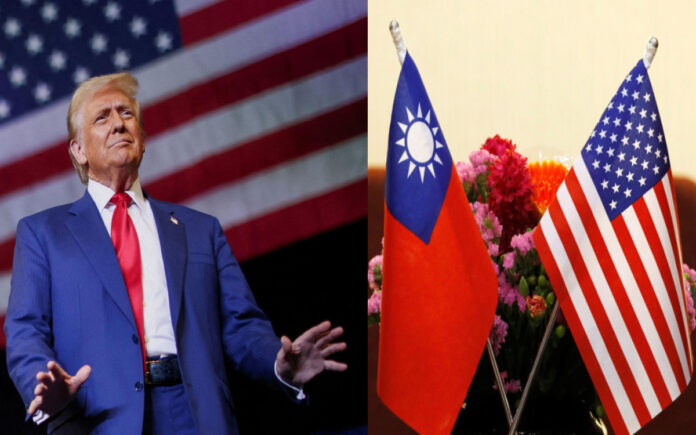Taipei/Washington: In response to former U.S. President Donald Trump’s re-election and his demand that Taiwan pay for U.S. defense support, Taiwan may look to demonstrate its commitment through substantial new arms deals. Experts suggest Taiwan could soon roll out big-ticket defense purchases to signal it values Washington’s support and is ready to invest in its own defense.
“Watch for Taiwan to engage on a large arms package—something significant, very large,” Rupert Hammond-Chambers, president of the U.S.-Taiwan Business Council, told Reuters. He suggested the deal might come as early as the first quarter of next year. “Think of it as a down payment, an attention getter,” he said, speculating that Taiwan might secure several high-value defense platforms along with major munitions purchases.
The U.S. already serves as Taiwan’s primary defense supplier, although Taiwan has reported an order backlog of about $20 billion. A new $2 billion missile system deal was recently announced, marking another significant addition to Taiwan’s arsenal.
Meanwhile, Taiwan’s foreign ministry warned in a recent report to lawmakers that China may try to test the U.S. during the presidential transition period. Potential forms of pressure include increased military drills, cyberattacks, and other methods of psychological warfare. Taiwan, which is claimed by China, has long rejected Beijing’s sovereignty claims and faces consistent military pressure, including recent war games near its territory.
A former U.S. official noted that Taiwan is likely to seek a major arms deal quickly to gain the Trump administration’s favor, especially in light of Trump’s criticism of Taiwan’s semiconductor industry. “They will want to solidify their fealty quickly to lock in Trump’s interest,” the official said.
Increased Defense Spending to Secure Support
Taiwan’s defense pact with Washington officially ended in 1979 along with diplomatic ties, so unlike Japan and South Korea, Taiwan does not directly pay for U.S. forces on its soil. However, Taiwan’s Foreign Minister Lin Chia-lung recently confirmed that defense spending, currently around 2.5% of GDP, will continue to rise. “The trend is for it to keep rising,” Lin told lawmakers when asked about potential ‘protection payments’ to the U.S.
Also Read | New Era, New Threat: North Korea’s Strengthened Arsenal Could Test Trump
In a statement to parliament, Deputy Defense Minister Po Horng-huei reaffirmed Taiwan’s commitment to self-defense, emphasizing, “It is our responsibility to maintain stability in the Taiwan Strait.”
Key Supporters in the New Administration
Names being floated for key positions in Trump’s new administration include former Secretary of State Mike Pompeo and former National Security Adviser Robert O’Brien, both of whom are vocal supporters of Taiwan. O’Brien’s recent tweet of thanks to Taiwan President Lai Ching-te for his congratulatory message to Trump further boosted confidence among officials in Taiwan.
One security source in Taiwan noted that Trump’s call for “protection” payments might be the nudge Taiwan needs to ramp up its defense spending further. “A new arms deal would be an excellent way to demonstrate Taiwan’s commitment to self-defense,” the source said.
Also Read | Key Issues at COP29: Climate Finance, Fossil Fuel Transition, and Adaptation Plans in Focus
During Trump’s first term, he won fans in Taiwan through actions that strengthened ties, such as arms sales, diplomatic visits, and a firm stance on China. Vincent Chao, a former campaign spokesperson for Lai and regular U.S. visitor, expressed optimism about Trump’s latest re-election. “When it comes to Trump, it’s about what he does, not what he says,” Chao said, emphasizing that Taiwan should feel confident despite Trump’s comments on Taiwan’s role.



